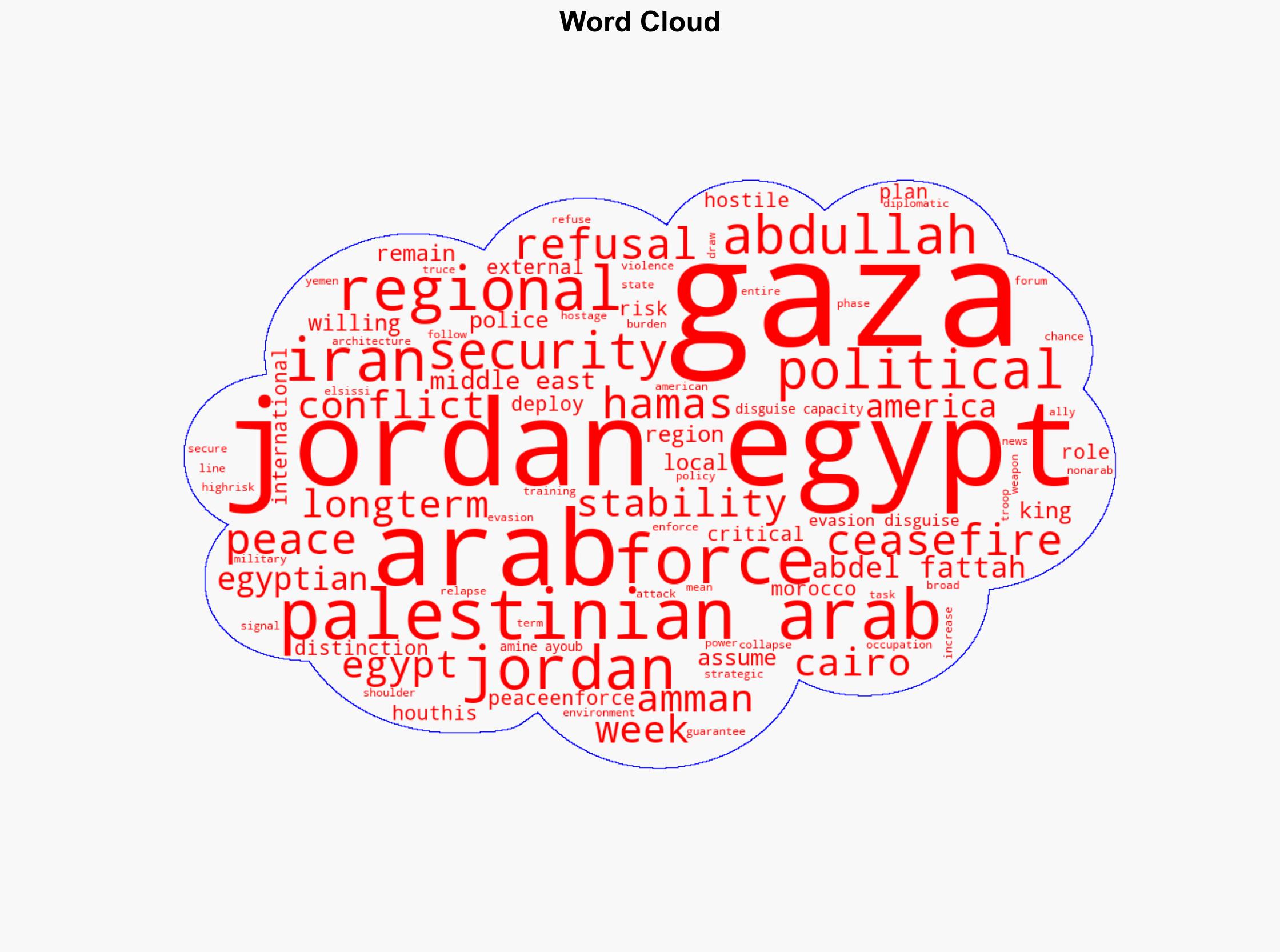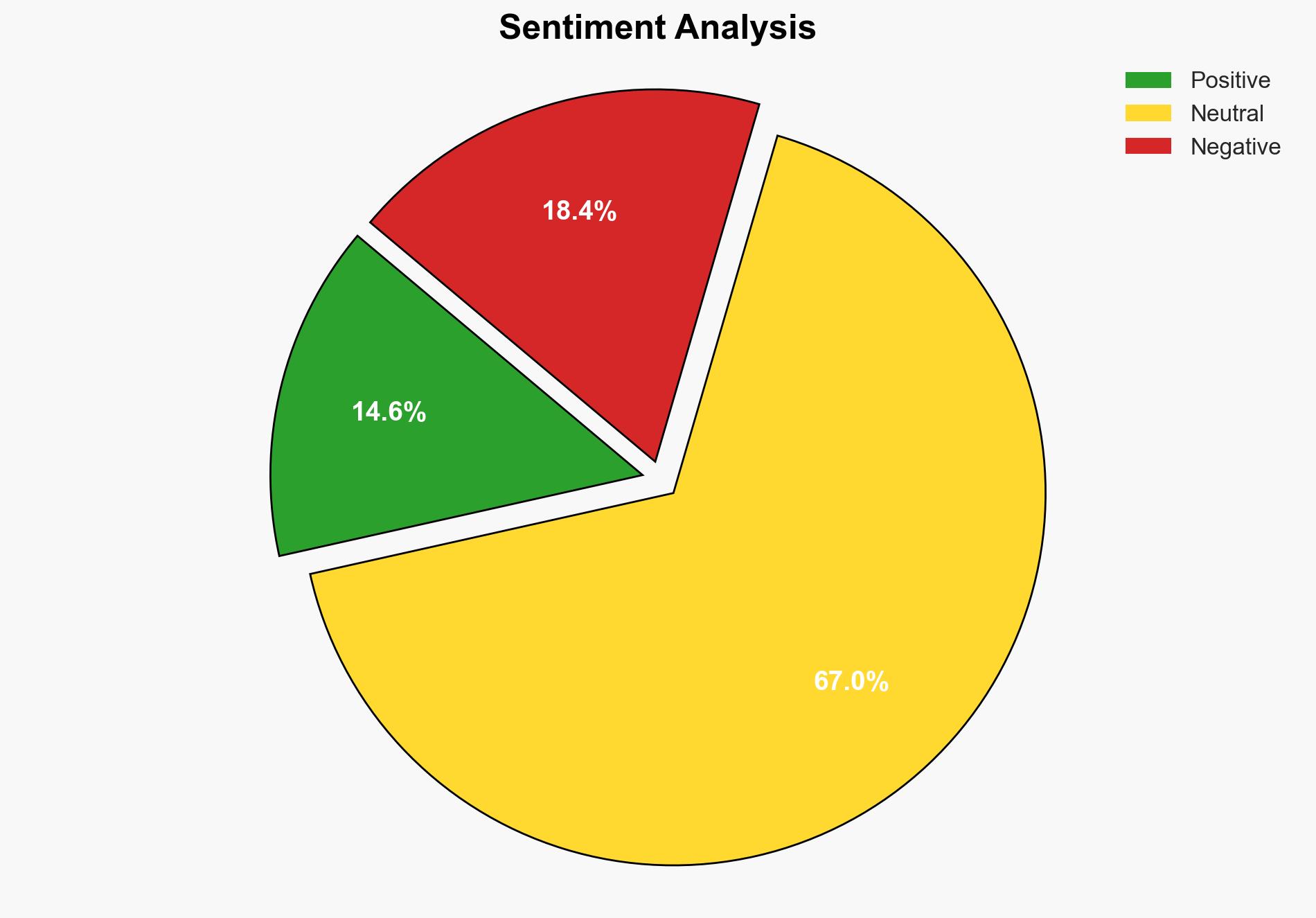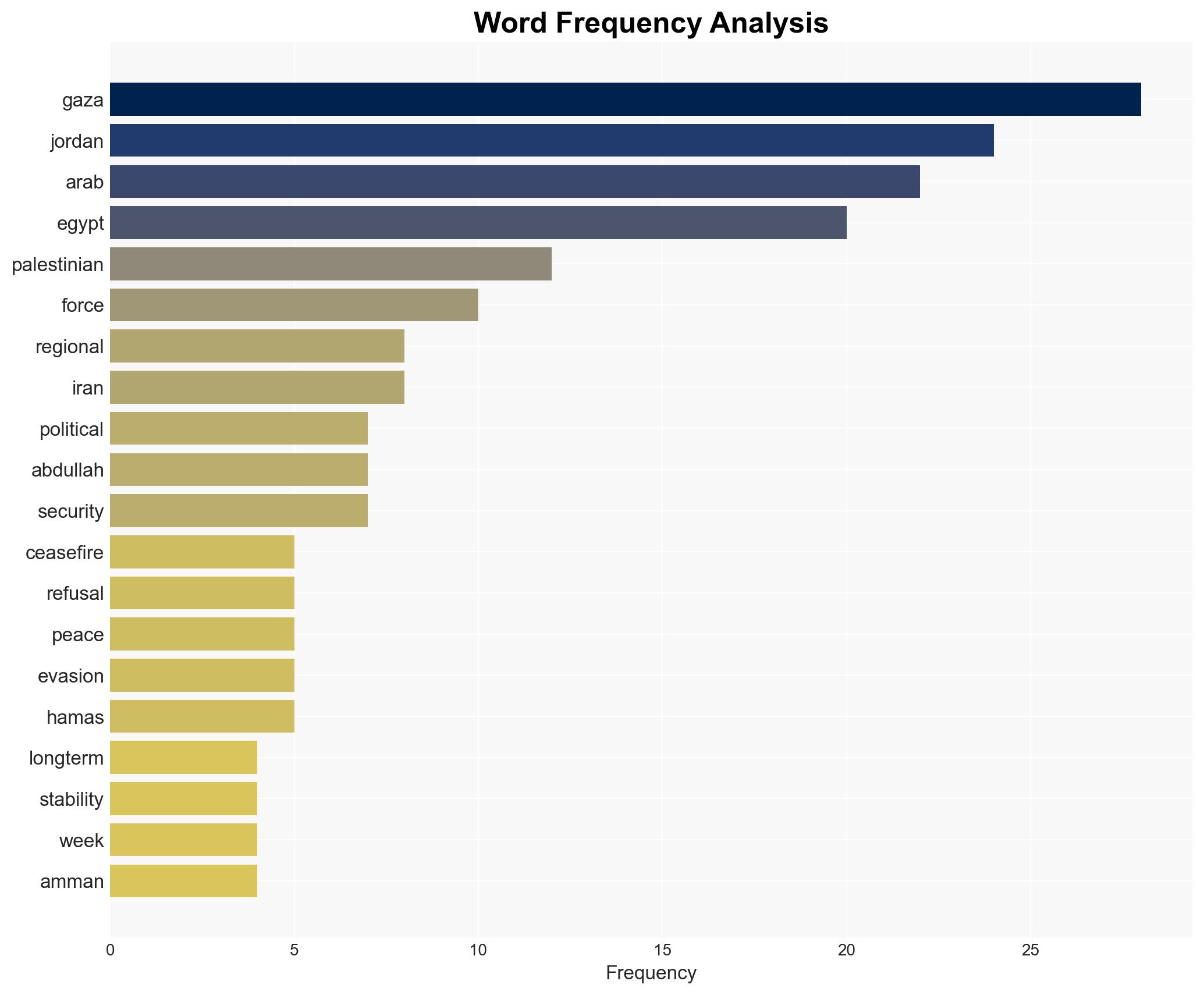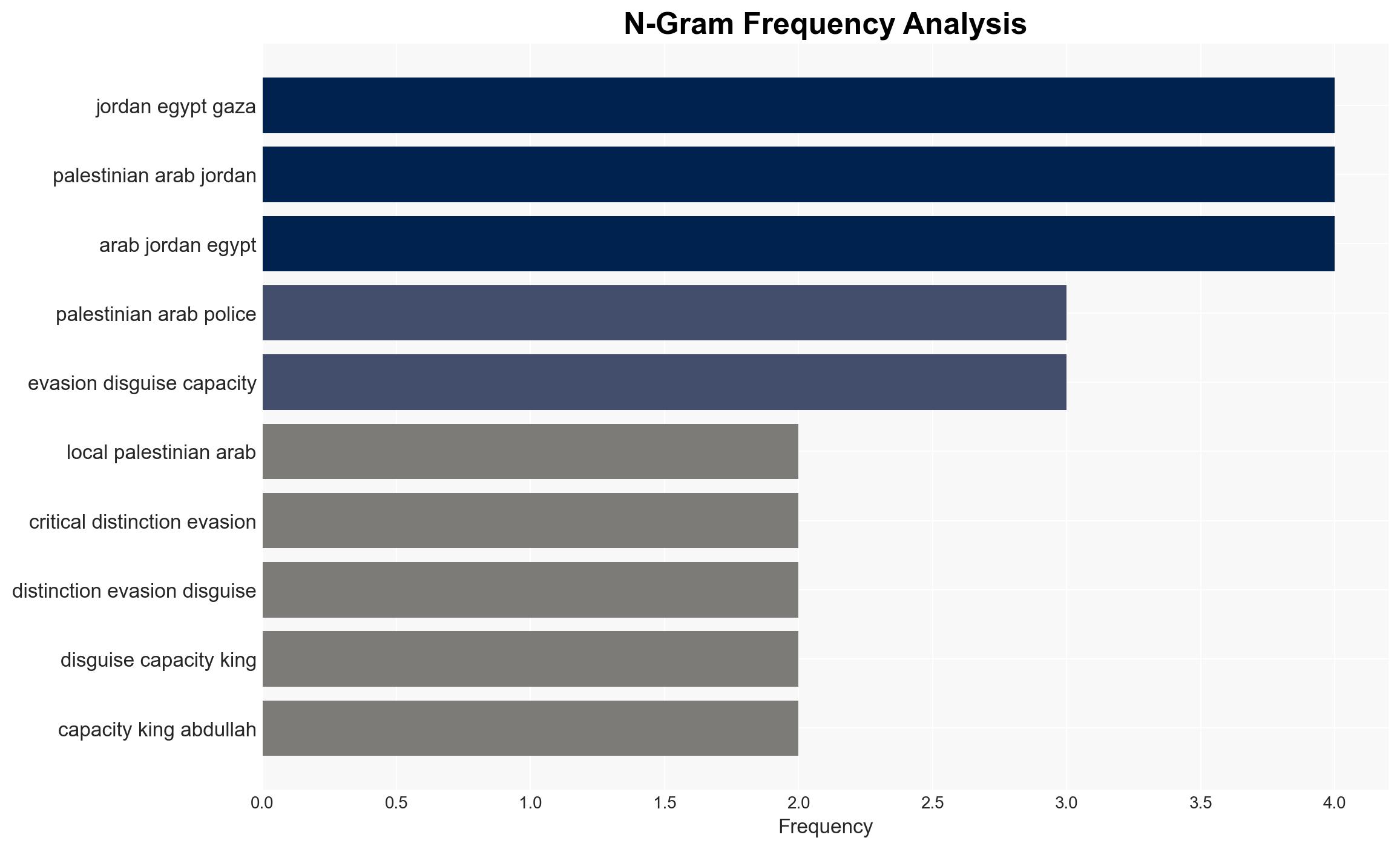Why Arab allies are sabotaging Gazas security – Israelnationalnews.com
Published on: 2025-11-18
AI-powered OSINT brief from verified open sources. Automated NLP signal extraction with human verification. See our Methodology and Why WorldWideWatchers.
Intelligence Report:
1. BLUF (Bottom Line Up Front)
Confidence Level: Moderate. The most supported hypothesis is that Arab allies are prioritizing domestic political stability over regional security commitments, leading to a strategic vacuum in Gaza’s security. Recommended action includes diplomatic engagement to encourage regional stakeholders to assume a more active role in peace enforcement.
2. Competing Hypotheses
Hypothesis 1: Arab allies are deliberately avoiding involvement in Gaza’s security to maintain domestic political stability and avoid the risks associated with confronting non-state actors like Hamas.
Hypothesis 2: Arab allies lack the capacity or willingness to engage in peace enforcement due to geopolitical calculations, preferring to support local forces indirectly to avoid direct confrontation and international scrutiny.
The evidence suggests Hypothesis 1 is more likely, as indicated by explicit refusals from Jordan and Egypt to deploy troops, highlighting a preference for low-risk diplomatic roles over high-risk military engagements.
3. Key Assumptions and Red Flags
Assumptions include the belief that regional stability is a shared priority and that Arab states have the capacity to intervene effectively. Red flags include potential bias in interpreting Arab states’ reluctance as purely strategic rather than capacity-driven. Deception indicators might involve public statements that mask true intentions or capabilities.
4. Implications and Strategic Risks
The strategic vacuum could lead to increased influence of non-state actors like Hamas and Iranian proxies, escalating regional instability. The absence of a robust Arab-led peace enforcement mechanism risks a relapse into violence, potentially drawing in international forces and complicating diplomatic efforts.
5. Recommendations and Outlook
- Engage diplomatically with Arab allies to explore incentives for greater involvement in Gaza’s security.
- Consider multilateral frameworks that include regional and international stakeholders to share the burden of peace enforcement.
- Best Scenario: Arab states assume a proactive role, stabilizing Gaza and reducing the influence of non-state actors.
- Worst Scenario: Continued inaction leads to a security vacuum, escalating violence, and broader regional instability.
- Most-likely Scenario: Limited engagement by Arab states results in a fragile peace maintained by international forces, with ongoing risks of conflict resurgence.
6. Key Individuals and Entities
King Abdullah of Jordan, Egyptian President Abdel Fattah el-Sisi, Hamas, Iranian proxies.
7. Thematic Tags
Structured Analytic Techniques Applied
- ACH 2.0: Reconstruct likely threat actor intentions via hypothesis testing and structured refutation.
- Indicators Development: Track radicalization signals and propaganda patterns to anticipate operational planning.
- Narrative Pattern Analysis: Analyze spread/adaptation of ideological narratives for recruitment/incitement signals.
Explore more:
Counter-Terrorism Briefs ·
Daily Summary ·
Support us





